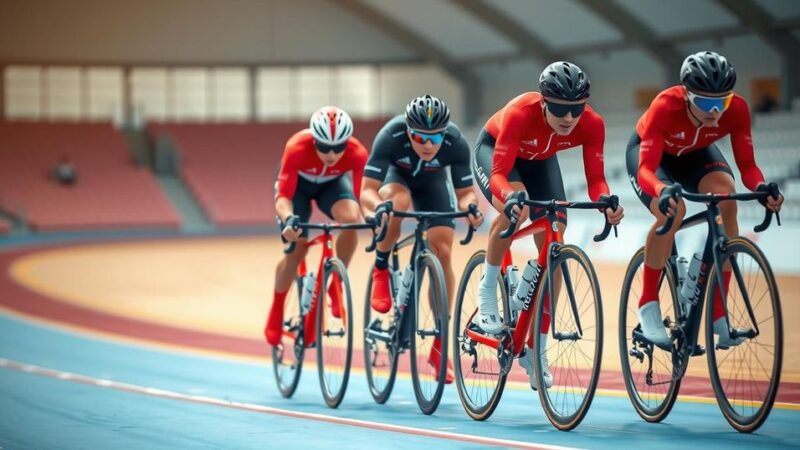Kirsty Coventry has been elected as the first female president of the IOC, marking a milestone for women’s leadership in sports. With a storied athletic career and current role as Zimbabwe’s sports minister, she faces scrutiny but aims to return Russian athletes to the Olympic stage amid geopolitical tensions. Coventry’s leadership could redefine international sports governance in the coming years.
Kirsty Coventry of Zimbabwe has emerged as a pivotal figure in women’s sports leadership, embodying the fight for women’s advancement within the context of Africa’s growing influence on the global stage. Her recent election as the president of the International Olympic Committee (IOC) marks a significant milestone, alongside the appointments of other women to key positions, including Shirley Ayorkor Botchwey as Secretary-General of the Commonwealth of Nations, and the inauguration of Namibian President Netumbo Nandi-Ndaitwah as her country’s first female president. This trend highlights the increasing prominence of women in political and organizational leadership positions across Africa.
Coventry, a former swimmer and Africa’s most decorated Olympian, won her IOC presidency via a decisive election. This historic achievement makes her the first woman and the first African to lead the Olympic movement. Coventry, who will begin her eight-year term this June, has an opportunity to influence the future of sports significantly. Following her education at Auburn University in Alabama, she made her Olympic debut in 2000 and has since won seven Olympic medals, solidifying her status as an influential figure in sports.
Currently serving as Zimbabwe’s minister of youth, sports, arts, and recreation, Coventry has faced criticism regarding her effectiveness in promoting sports development for the nation’s underprivileged populations. Critics, including sports magazine editor Leopold Munhende, argue that her ministerial actions have not positively impacted the communities most in need. Despite accolades for her IOC success, sentiments persist that Coventry’s impact at home remains troubling amid widespread economic issues and government mismanagement in Zimbabwe.
Geopolitically, Russian officials perceive Coventry’s election as an opportunity to facilitate Russia’s return to the Olympic landscape. This situation presents a unique chance for the country, under the leadership of Coventry, to advocate for the reinstatement of its athletes in future Olympic events, particularly following assurances from Russian Sports Minister Mikhail Degtyarev. He has expressed optimism for revitalizing the Olympic movement and Russia’s presence within it, signaling the potential for renewed competition as soon as the upcoming Winter Olympics in 2026.
Coventry aims to address the situation of Russian athletes through a designated task force, contemplating their participation in major events under specified conditions. The IOC recently suspended the Russian Olympic Committee amid international conflicts, including the ongoing ramifications of Russia’s military actions in Ukraine. As the IOC transitions leadership, this evolving narrative underscores the complex dynamics at play in international sports governance, with Coventry positioned to navigate these challenges.
The IOC remains responsible for organizing the global Olympic framework, having been established in 1894. As Coventry prepares to assume her role, the IOC is preparing for upcoming elections after the resignation of Thomas Bach, with Coventry’s leadership potentially redefining the organization’s strategies moving forward. Upon her election victory in March, Coventry’s actions could reshape how various nations participate in international sports, especially in the context of the ongoing geopolitical climate.
Kirsty Coventry’s election as the first female president of the IOC represents a significant advancement for women’s representation in international sports leadership. Despite facing criticism regarding her contributions to Zimbabwean sports, her new position provides an opportunity to foster discussions about the return of Russian athletes in a changing geopolitical landscape. The forthcoming term will be critical as Coventry navigates the complexities of international relations within the sports domain.
Original Source: www.eurasiareview.com






